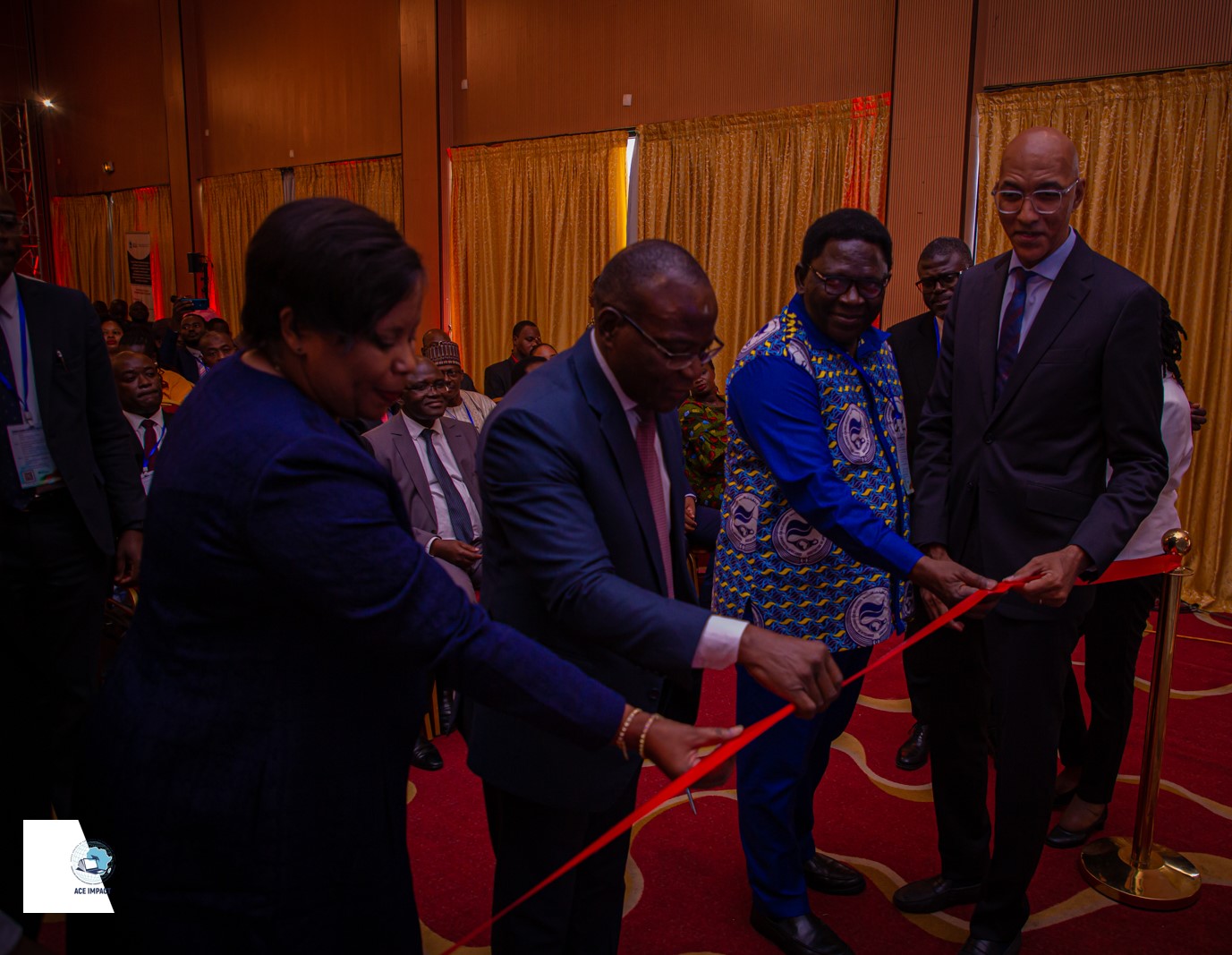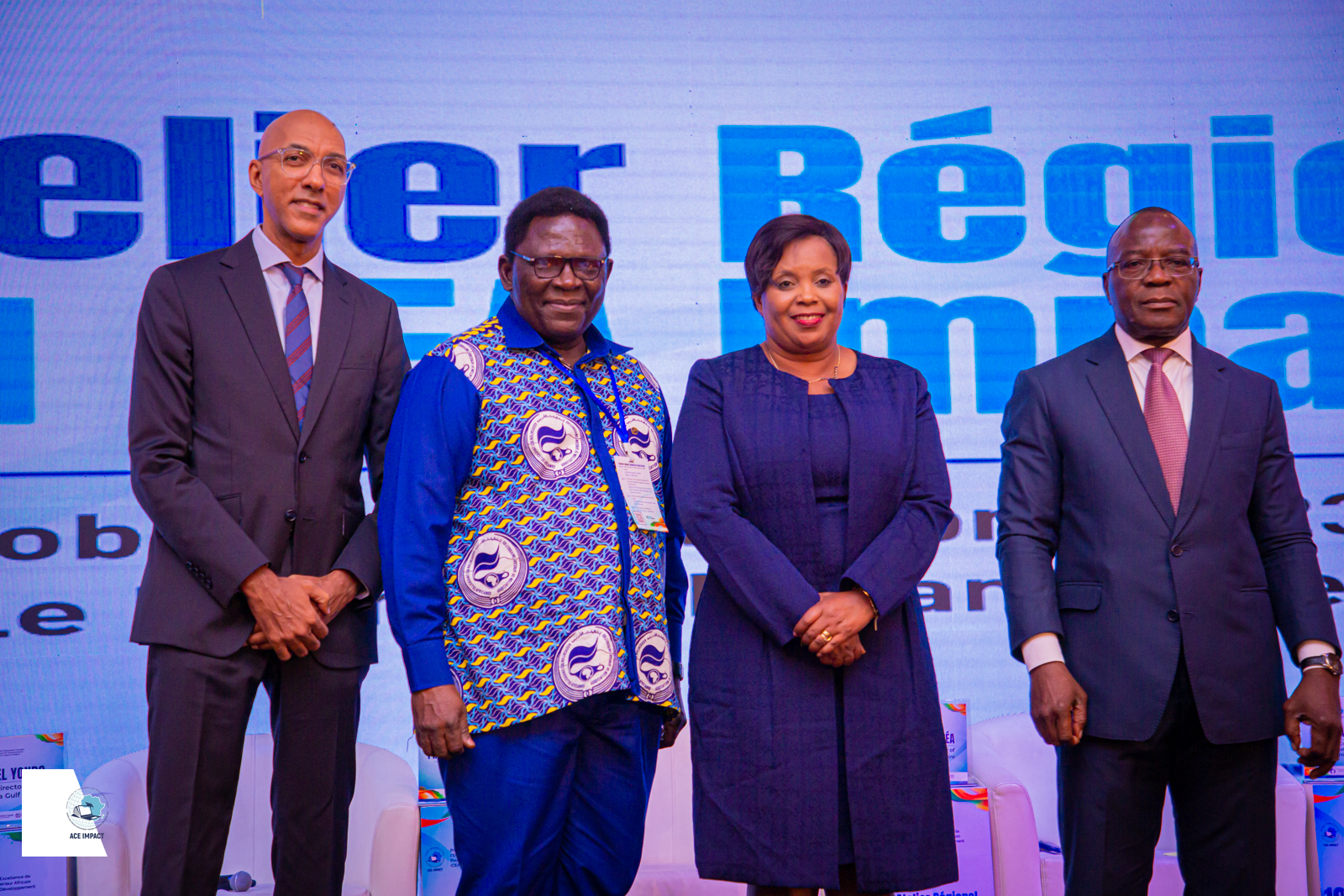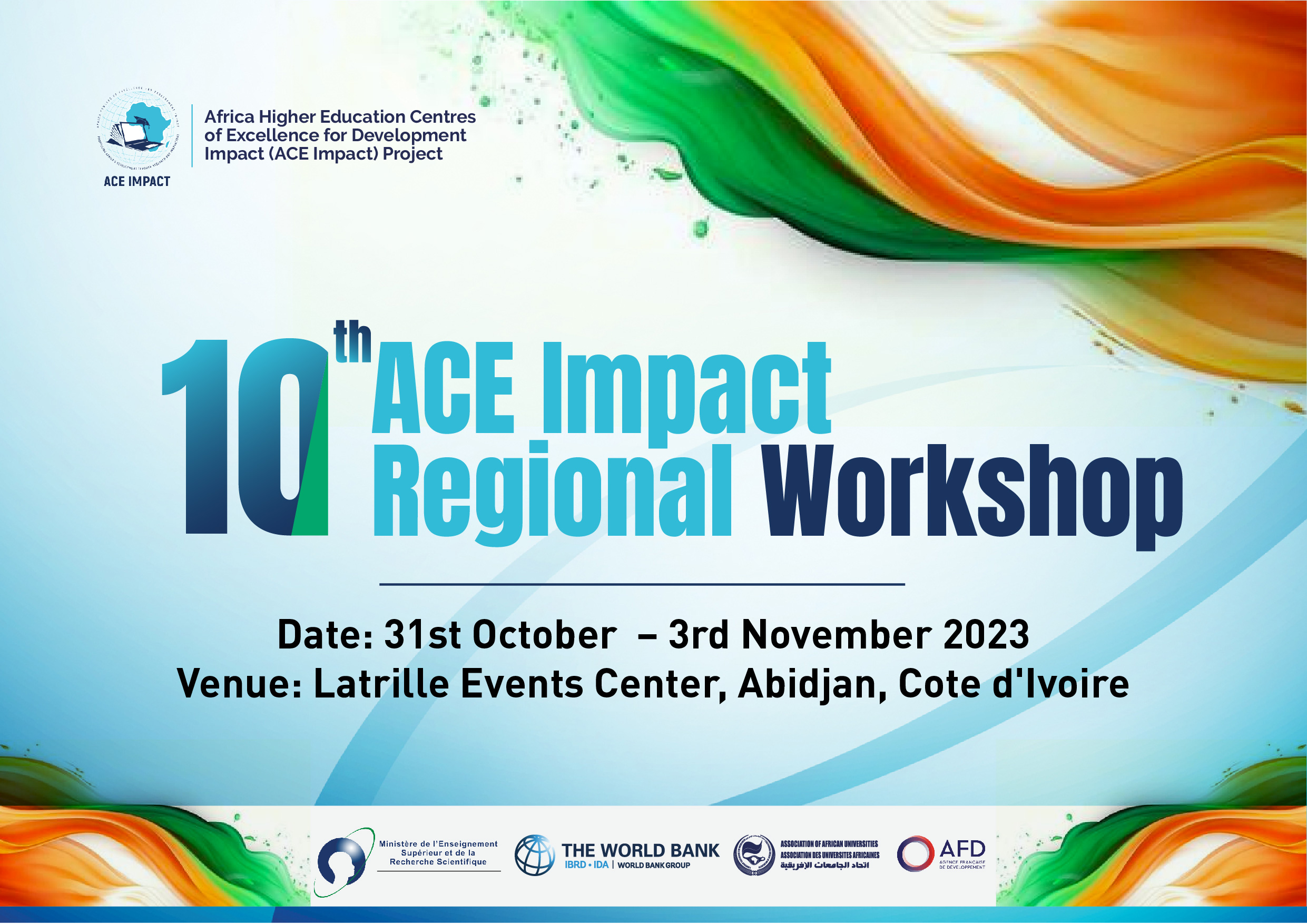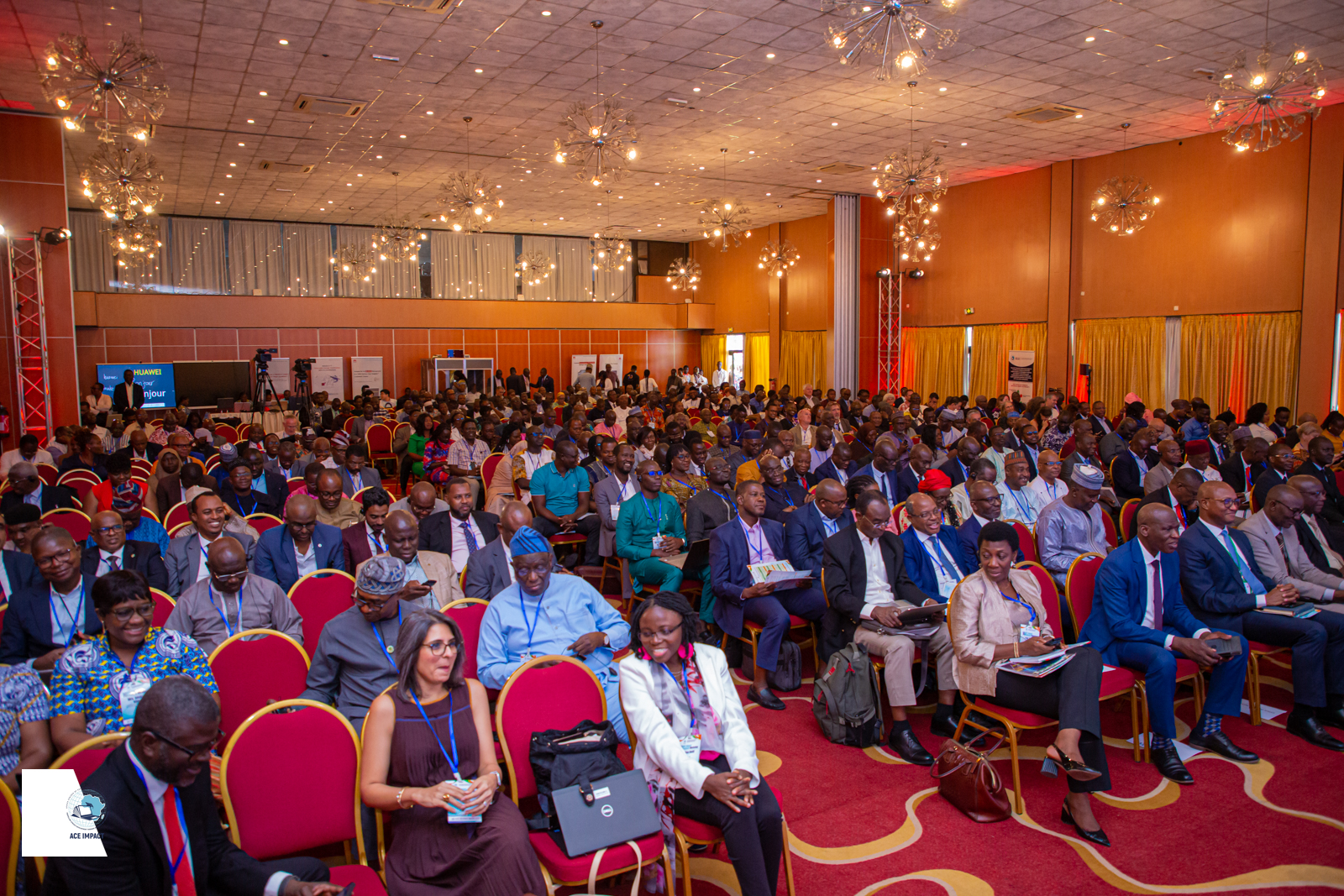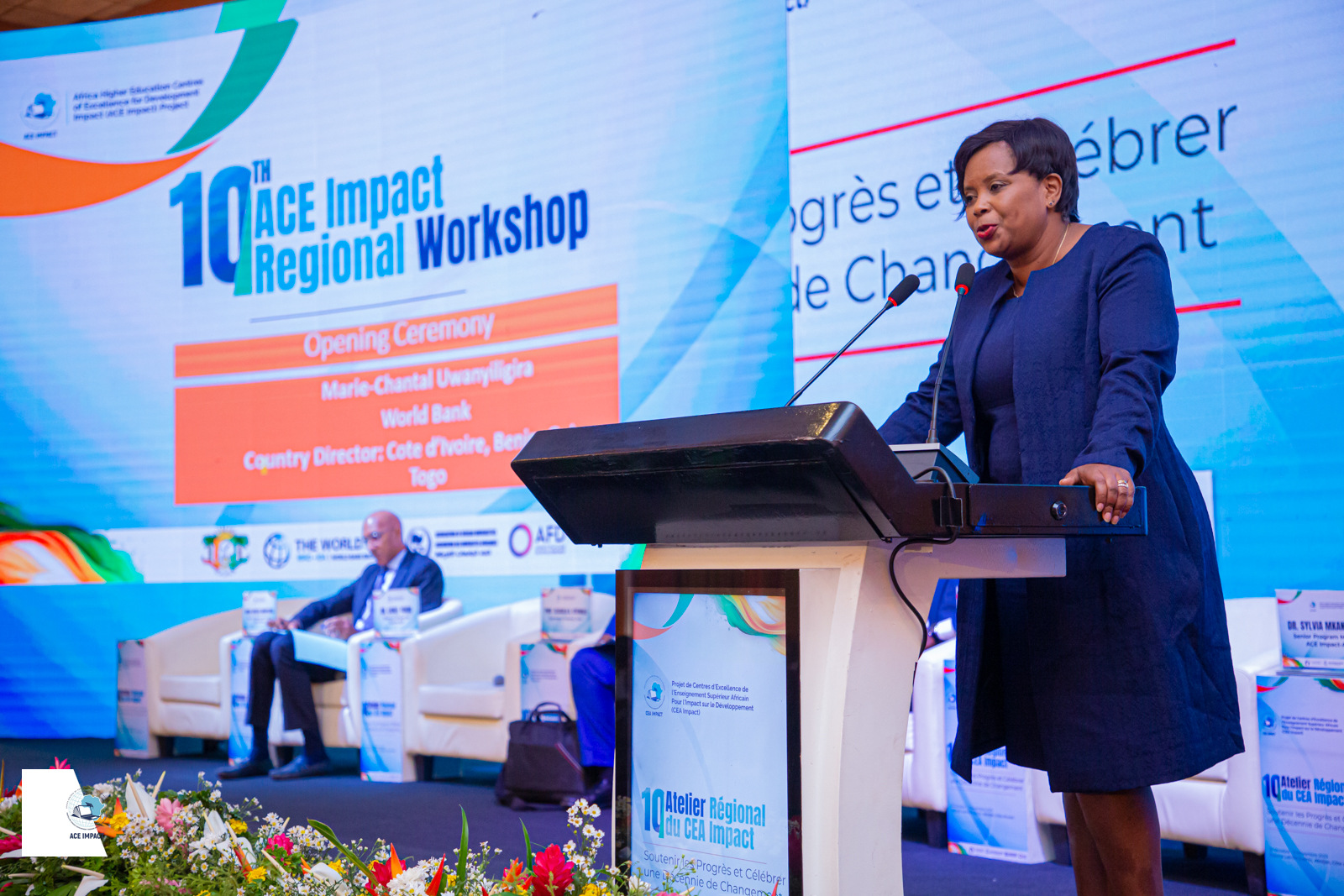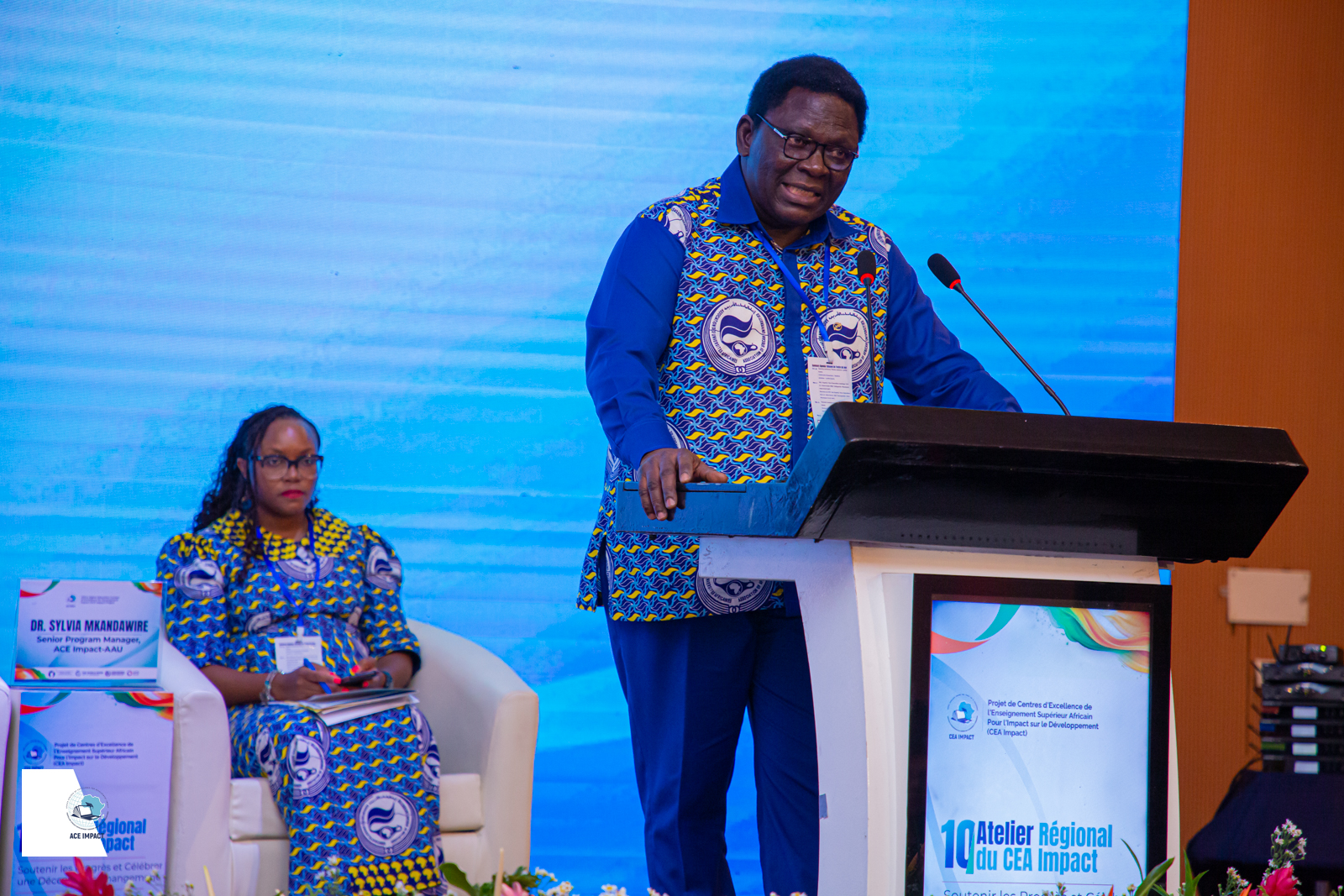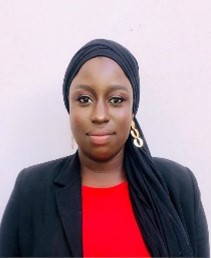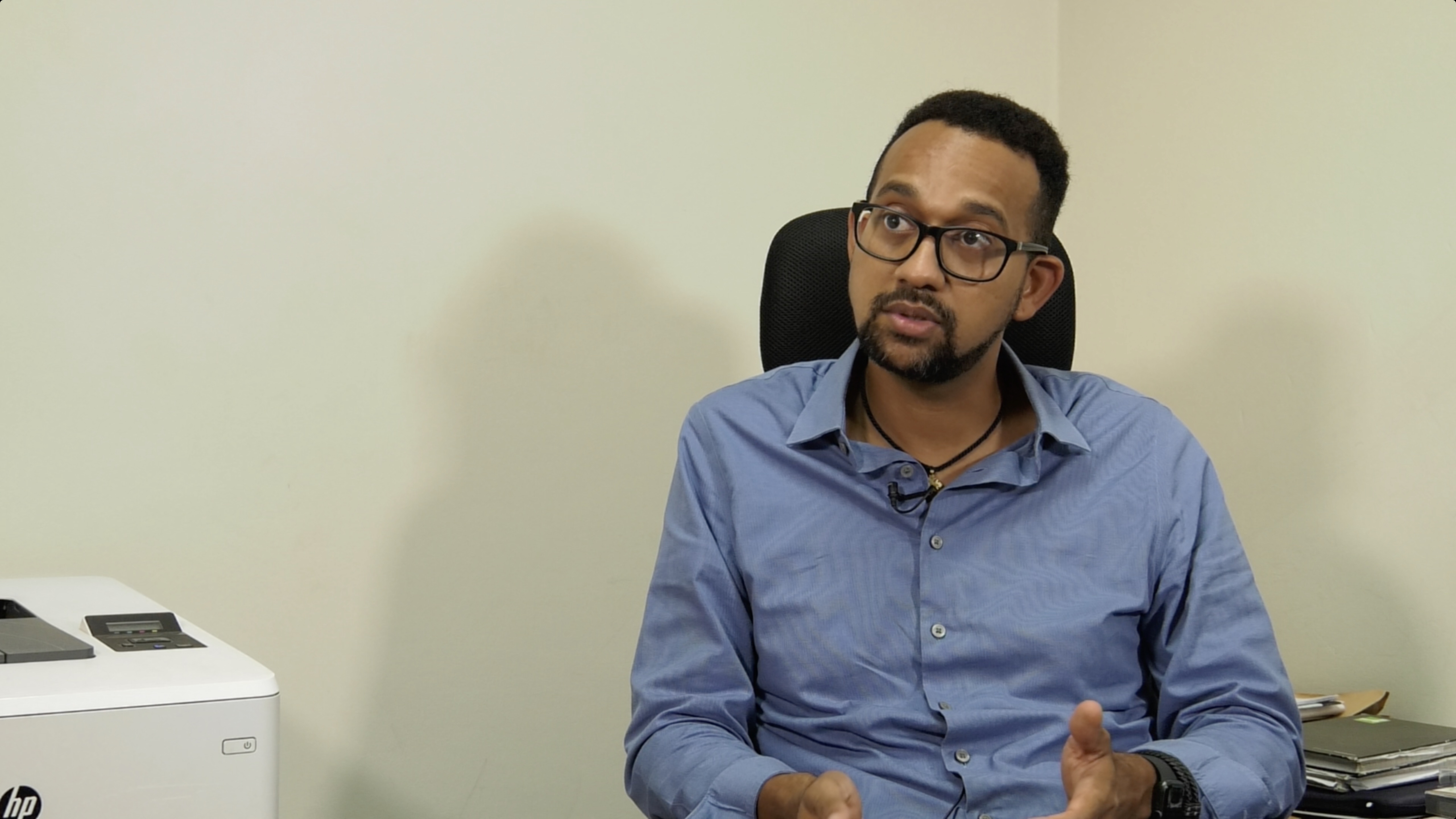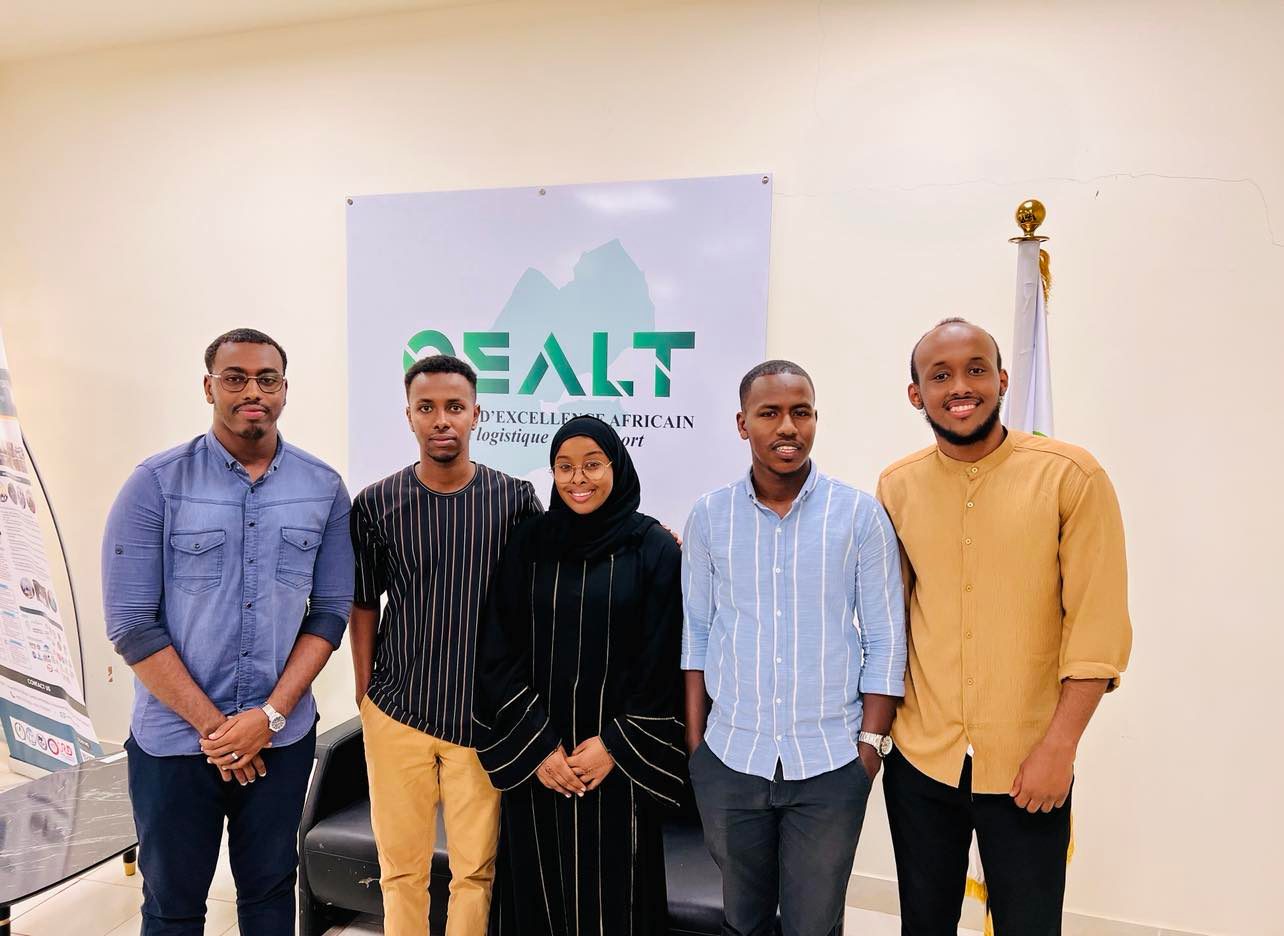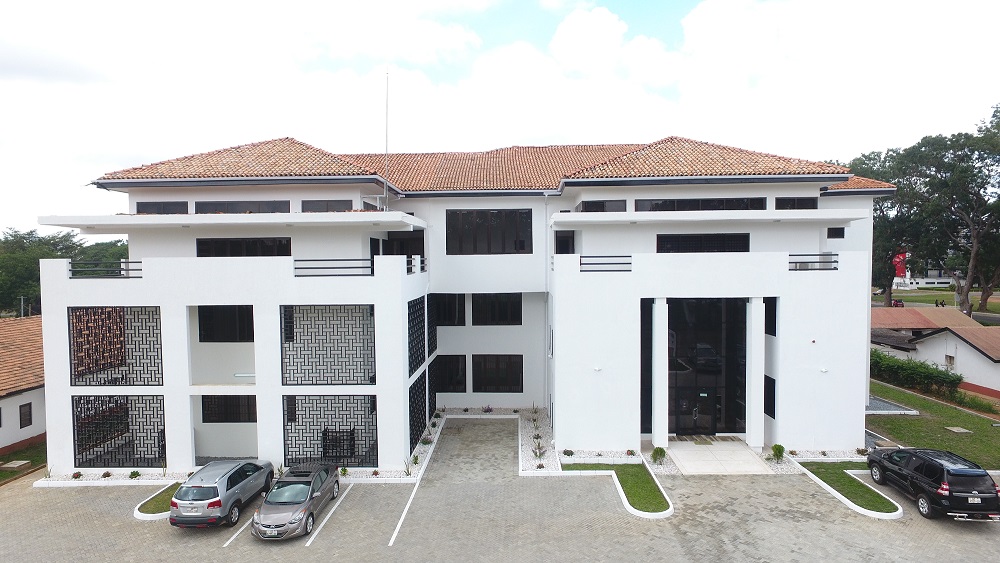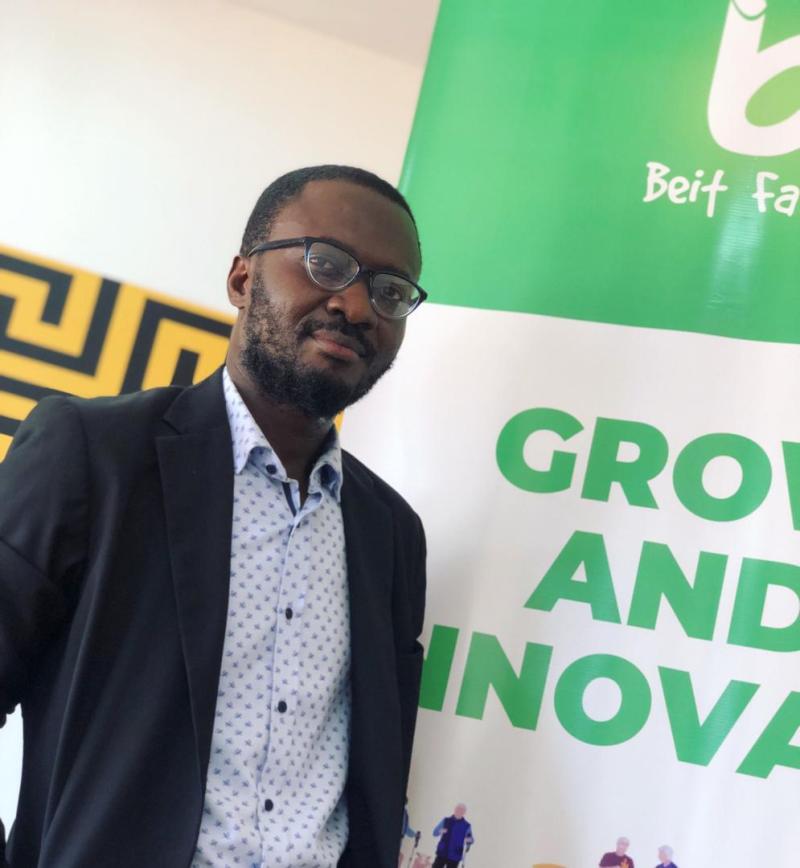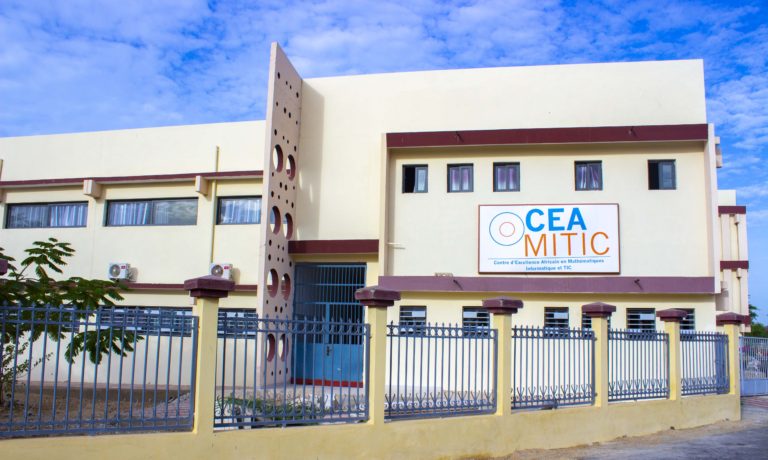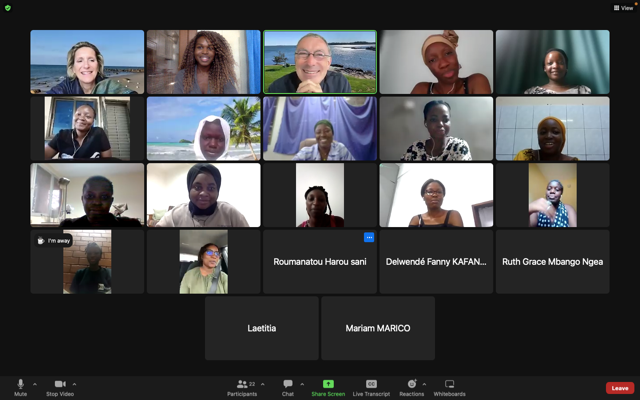ACE Impact achieves high aggregate performance – Nimble Evaluation Report
The Africa Centers of Excellence for Development Impact (ACE Impact) project has achieved notable figures (results), according to an independent evaluation, and is on track to exceeding the project’s overall objectives. Despite many challenges impacting its implementation, including the devastating COVID-19 pandemic, the project has produced innovative and groundbreaking research, maintained large scale enrollment, driven capacity building and more, becoming a model example for host universities, as well as the entire Africa higher education ecosystem.
The independent nimble evaluation report findings were presented by Mr. Jamil Salmi, an education economist, on Tuesday, 31st October 2023 during the ongoing ACE Impact 10th regional workshop at Latrille Events, in Abidjan, Cote d’Ivoire. Mr. Salmi described the project as a ‘transformative program’ and ‘driver of change’ in the education sector. The report highlighted the overall significant progress and impact recorded by the project, especially in academic quality, sectorial engagement, regional networks, gender equity, and digitalization. The report sampled four ACE-participating countries—two anglophone (Ghana and Nigeria) and two francophone (Cote d’Ivoire and Niger)—for the independent rapid assessment, assessing program documentation, databases, interviews of country and centre team leaders for the entire ACE program series, encompassing ACE I, ACE II, and ACE Impact.
As ACE Impact ends in June 2025, one major talking point raised in recent stakeholder engagements has been the project’s beyond-funding sustainability. It also emerged from the report that while some of the studied centres have weaned themselves off project funding and attained a sustainability status, having developed capacity for revenue generation for themselves as well as their host universities, other centers are working towards achieving the same effect.
For these centers to be able to efficiently implement their long-term sustainability strategies and consolidate their gains, would depend not only on the centers themselves, but also their host universities, countries, and funders. Thus, while centers were encouraged to scale up resource diversification efforts focusing on continuing education and technology transfer, their host institutions were also incentivized to prioritize centers as part of the institutions’ research strategies, coordinate academic staff and administrative positions, and allocate budgetary resources to centers on a structural basis, such as scholarships for regional students. On their parts, Central governments and donor communities were respectively urged to adequately fund host institutions and centers and align with the universities’ long-term strategic plans.
Standing tall as a story of success in the Africa higher education and scientific ecosystem, the ACE Impact project is jointly funded by World Bank Group and French Development Agency (AFD) and coordinated by the Association of African Universities (AAU).
By consolidating their educational progress and capacity building successes whilst leveraging each other’s strengths and opportunities through collaborations, partnerships, and networking, centers are in a convenient position to individually and collectively contribute to the ACE project’s aim of enhanced quality and quantity of postgraduate education in Africa.
Discussions of the nimble evaluation session of the 10th regional workshop were moderated by World Bank Senior Education Specialist and ACE Impact Core Team Leader, Dr Ekua Bentil.

